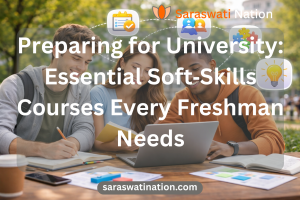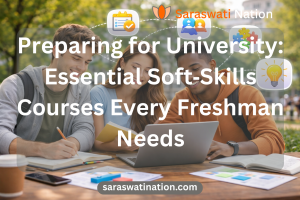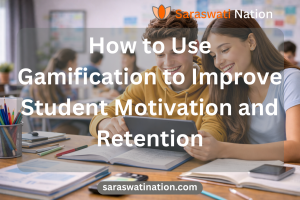
How to Use AI to Write Essays Without Plagiarizing: A Complete Guide for Students and Parents
In today’s digital age, artificial intelligence has revolutionized the way students approach essay writing. However, with great power comes great responsibility. Many students and parents wonder: “Can AI help with essay writing without crossing the line into plagiarism?” The answer is yes – when used correctly and ethically.
This comprehensive guide will show you exactly how to leverage AI tools for essay writing while maintaining academic integrity and avoiding plagiarism accusations.
Understanding AI Essay Writing Tools and Academic Integrity
What Are AI Essay Writing Tools?
AI essay writing tools are sophisticated software programs that use artificial intelligence to help students with various aspects of the writing process. Popular AI writing assistants include ChatGPT, Claude, Grammarly, and specialized academic writing tools. These platforms can help with brainstorming, research, outlining, drafting, and editing.
The Difference Between AI Assistance and Plagiarism
Many students and parents are confused about where the line is drawn between helpful AI assistance and academic dishonesty. Here’s what you need to know:
AI Assistance (Generally Acceptable):
- Brainstorming essay topics and ideas
- Creating outlines and structure
- Grammar and spelling checks
- Research assistance and source suggestions
- Paraphrasing and improving sentence structure
- Formatting help
Plagiarism (Unacceptable):
- Having AI write entire essays for you
- Copying AI-generated text without attribution
- Submitting AI work as your own original thinking
- Using AI to complete take-home exams without permission
Step-by-Step Guide: How to Use AI for Essay Writing Ethically
Step 1: Start with Brainstorming and Topic Development
Begin your essay writing process by using AI as a brainstorming partner. Ask your AI tool to help you:
- Generate potential essay topics related to your assignment
- Explore different angles and perspectives on your chosen topic
- Identify key themes and arguments
- Suggest relevant examples and case studies
Example Prompt: “Help me brainstorm essay topics about climate change impacts on developing countries. I need to write a 1500-word argumentative essay.”
Step 2: Research Assistance and Source Finding
Use AI to enhance your research process:
- Ask for recommendations on credible sources and databases
- Request suggestions for academic keywords and search terms
- Get help organizing your research findings
- Identify gaps in your research that need additional sources
Important: Always verify AI-suggested sources and conduct your own research. AI can sometimes provide outdated or incorrect information.
Step 3: Create an Outline with AI Support
Develop a strong essay structure using AI assistance:
- Request help creating a logical essay outline
- Ask for suggestions on how to organize your arguments
- Get feedback on the flow and coherence of your planned structure
- Ensure your outline includes proper introduction, body paragraphs, and conclusion
Step 4: Write Your First Draft (The Right Way)
This is where many students make mistakes. Here’s how to use AI ethically during drafting:
Do:
- Write your own sentences and paragraphs first
- Use AI to improve clarity and flow of your existing writing
- Ask for alternative ways to express your ideas
- Request help with transitions between paragraphs
Don’t:
- Ask AI to write entire paragraphs or sections
- Copy-paste AI-generated content without modification
- Let AI develop your arguments for you
Step 5: Editing and Revision with AI Tools
AI excels at helping with the editing process:
- Grammar and spelling correction
- Sentence structure improvement
- Clarity and readability enhancement
- Consistency checks
- Citation format verification
Step 6: Plagiarism Prevention Strategies
Before submitting your essay:
- Run your work through plagiarism detection software
- Ensure all sources are properly cited
- Verify that your writing reflects your own voice and ideas
- Check that AI assistance is acknowledged if required by your institution
Best Practices for Students Using AI in Essay Writing
For High School Students
High school students should focus on developing fundamental writing skills while using AI as a supportive tool:
- Start Small: Begin with simple AI assistance like grammar checking and basic research help
- Learn the Fundamentals: Master essay structure, citation styles, and critical thinking before relying on advanced AI features
- Check School Policies: Always review your school’s AI usage policies before incorporating these tools
- Maintain Your Voice: Ensure your essays still sound like your writing, not an AI’s output
For College and University Students
College students can use more sophisticated AI assistance while maintaining higher standards of academic integrity:
- Advanced Research Support: Use AI for complex literature reviews and source analysis
- Argument Development: Get help refining and strengthening your thesis statements
- Peer Review Simulation: Use AI to provide feedback on drafts before peer review sessions
- Professional Writing: Leverage AI for formal academic writing conventions
Common Mistakes to Avoid When Using AI for Essays
Mistake 1: Complete Dependence on AI
Many students become too reliant on AI, losing the ability to write independently. This dependency can hurt long-term academic and professional success.
Solution: Use AI as a tool, not a replacement for your own thinking and writing skills.
Mistake 2: Ignoring School Policies
Different educational institutions have varying policies on AI usage. Some prohibit it entirely, while others allow it with proper disclosure.
Solution: Always check and follow your institution’s specific AI usage guidelines.
Mistake 3: Failing to Fact-Check AI Information
AI can provide incorrect or outdated information, especially for recent events or specialized topics.
Solution: Always verify AI-provided information with credible, current sources.
Mistake 4: Not Developing Original Thoughts
Relying too heavily on AI can prevent students from developing their own critical thinking and analytical skills.
Solution: Use AI to enhance your ideas, not replace your original thinking.
Tips for Parents: Supporting Your Child’s Ethical AI Use
Understanding the Technology
As a parent, it’s important to understand how AI writing tools work and their potential benefits and risks:
- Learn about popular AI tools your child might use
- Understand the difference between assistance and cheating
- Stay informed about school policies regarding AI usage
- Encourage open communication about AI tool usage
Setting Boundaries and Guidelines
Help your child establish healthy boundaries with AI:
- Create Family AI Guidelines: Establish clear rules about when and how AI can be used for schoolwork
- Encourage Transparency: Teach your child to be honest about AI usage with teachers when appropriate
- Focus on Learning: Emphasize that the goal is learning and skill development, not just getting good grades
- Monitor Usage: Keep track of how your child uses AI tools without being overly restrictive
Supporting Skill Development
While AI can be helpful, ensure your child continues developing essential writing skills:
- Encourage handwritten drafts before using AI tools
- Practice essay writing without any technological assistance
- Focus on critical thinking and argument development
- Maintain strong reading habits to improve natural writing ability
The Future of AI in Academic Writing
Evolving Educational Standards
Educational institutions are adapting to AI technology:
- Many schools are developing new AI literacy curricula
- Assessment methods are evolving to account for AI assistance
- Teachers are learning to distinguish between appropriate AI use and plagiarism
- New academic integrity policies are being implemented
Preparing for Professional Life
Learning to use AI ethically in academic writing prepares students for their future careers:
- Most professional environments will incorporate AI tools
- Ethical AI usage is becoming a valuable skill
- Understanding AI limitations is crucial for professional success
- Learning to maintain human creativity while leveraging AI is essential
Specific AI Tools and How to Use Them Responsibly
Grammar and Style Checkers
Tools like Grammarly and Hemingway Editor can help improve writing quality:
Best Uses:
- Correcting grammar and spelling errors
- Improving sentence structure and readability
- Ensuring consistent writing style
- Catching common writing mistakes
Research Assistants
AI research tools can help find relevant sources and information:
Best Uses:
- Generating research keywords
- Finding academic databases
- Organizing research notes
- Identifying knowledge gaps
Writing Enhancement Tools
Advanced AI writing assistants can help with more complex writing tasks:
Best Uses:
- Improving clarity and coherence
- Suggesting alternative phrasings
- Helping with writer’s block
- Providing structural feedback
Building Long-Term Success with Ethical AI Use
Developing Digital Literacy
Students need to develop strong digital literacy skills:
- Understanding how AI works and its limitations
- Learning to evaluate AI-generated information critically
- Developing skills to prompt AI effectively
- Maintaining awareness of AI bias and errors
Maintaining Human Skills
While AI becomes more prevalent, human skills remain essential:
- Critical thinking and analysis
- Creative problem-solving
- Original idea generation
- Effective communication
- Ethical reasoning
Preparing for Academic and Professional Success
Using AI ethically in essay writing prepares students for future success:
- Develops technological proficiency
- Builds ethical decision-making skills
- Enhances research and writing abilities
- Prepares for AI-integrated workplaces
Conclusion: Embracing AI While Maintaining Academic Integrity
AI tools can be powerful allies in the essay writing process when used responsibly and ethically. The key is finding the right balance between leveraging AI’s capabilities and maintaining your own intellectual growth and academic integrity.
Remember that the goal of essay writing assignments is not just to produce a good paper – it’s to develop critical thinking skills, improve communication abilities, and deepen understanding of subject matter. AI should enhance these learning objectives, not replace them.
By following the guidelines and best practices outlined in this article, students can harness the power of AI to improve their writing while avoiding plagiarism and maintaining academic honesty. Parents can support this process by staying informed, setting appropriate boundaries, and encouraging ethical technology use.
The future belongs to those who can effectively collaborate with AI while maintaining their human creativity, critical thinking, and ethical standards. Start building these essential skills today.
Ready to Master Ethical AI Use in Academic Writing?
If you’re looking for personalized guidance on using AI tools responsibly for academic success, our expert tutors can help. We offer comprehensive courses and one-on-one online teaching that covers:
- Ethical AI usage in academic writing
- Advanced essay writing techniques
- Research methodology and source evaluation
- Academic integrity best practices
- Personalized writing skill development
Take the Next Step: Contact us today to learn more about our courses and personalized tutoring services. Our experienced educators can help you or your child develop the skills needed to succeed in today’s AI-enhanced academic environment.
Contact Us to discuss your specific needs and learn how we can support your academic journey.
Explore Our Courses: Visit our online shop to discover our full range of academic support courses designed for high school and university students.
Don’t let confusion about AI usage hold you back from academic success. Get the expert guidance you need to navigate this new landscape confidently and ethically.



